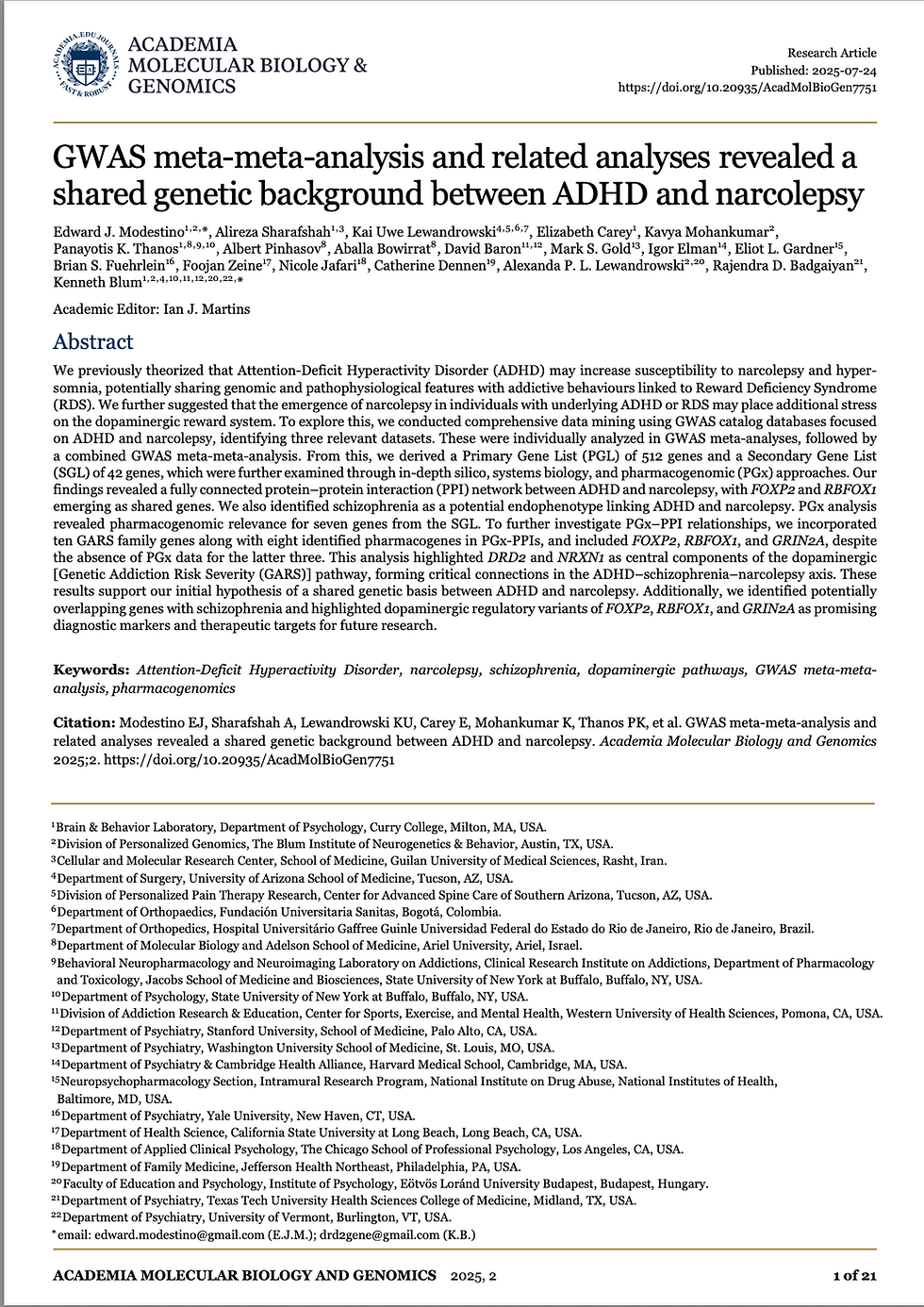The Unexplained: Case Studies in Medicine
- Edward Justin Modestino, Ph.D.

- Jul 9, 2024
- 3 min read
Updated: Jul 10, 2024

I am a member of a private listserv for a group of scientific researchers. A member posted a link to this very strange article titled Phantom of the Organ (Guzzi, 2024). Subsequently, I emailed the author at Yale to obtain a copy of the full report. The author's name is John Guzzi, M.D. He is an Assistant Professor of Medicine in Anesthesiology & Critical Care at Yale University School of Medicine. In this report, Dr. Guzzi described a patient who had a liver transplant and began to claim to see an apparition in his room. The patient asked the doctor if the woman in the corner of the room was real or a hallucination. The doctor explained that they were the only two people in the room. Residents continued to report this from the patient, which could be attributed to post-surgical delirium, psychosis, a stress response, or a medication-induced hallucination. However, the patient claimed that this was indeed the deceased donor of his liver, and the description did indeed match the female donor. Dr Guzzi explained that he was neither a psychiatrist nor a psychologist, but in his opinion, the patient's narrative was providing him with some sort of connection to the donor or even some sort of way to process past traumatic experiences symbolically. This case study shall remain unexplained.
Within this same listserv, another member sent around a different case study of the unexplained by Azuonye (2007) titled A difficult case: Diagnosis made by hallucinatory voices. The case study was about a woman who claimed to have auditory hallucinations, suggesting she obtained a brain scan. The patient assumed she had gone insane and was diagnosed with a "functional hallucinatory psychosis" by Dr. Azunye, a psychiatrist at a psychiatric outpatient clinic in London, U.K. The patient received antipsychotic medication and counseling. However, the patient claimed that despite the treatment, the auditory hallucinations came back after two weeks. The voice in her head claimed to have worked at a hospital, suggesting the voice might be that of a deceased individual, and that the patient needed a brain scan as she had a tumor in her brain and that there was inflammation in her brainstem. To assist the patient with challenging the reality of the information from her auditory hallucinations, the psychiatrist ordered a brain scan. The request was initially declined due to a lack of justification for the scan. Subsequently, the psychiatrist somehow justified the need for the scan for his patient. Two brain scans were obtained, an initial one and a second one at a later date with contrast. The scans divulged "a left posterior frontal parafalcine mass, which extended through the falx to the right side. It had all the appearances of a meningioma" (Azuonye, 2007, p. 1685). This led to the need for an operation by a neurosurgeon to remove the tumor. The patient fully recovered, and the voices wished her well and adieu. Could these hallucinations have been a direct result of a lesion caused by the tumor? Skepticism surrounding the case led to speculations that the patient came to the U.K. from her home country to obtain free surgery. However, the patient had lived in the U.K. for 15 years and thus was eligible for the surgery through NHS. Further skepticism led to speculation that the patient unconsciously created these hallucinations as she had some sort of intuition or sense that something was wrong. However, none of the explanations offered appear to make sense. This is another case study that shall remain unexplained.
References
Azuonye, I. O. (1997). A difficult case: Diagnosis made by Hallucinatory Voices. BMJ, 315(7123), 1685–1686. https://doi.org/10.1136/bmj.315.7123.1685
Guzzi, J. (2024). The phantom of the organ. New England Journal of Medicine, 390(24), 2236–2237. https://doi.org/10.1056/nejmp2401849




Comments